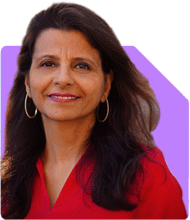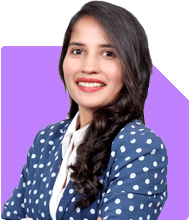Komal Jethmalani |389 Answers |Ask -Follow
Dietician, Diabetes Expert - Answered on Nov 11, 2020
She specialises in weight loss and diabetes management.
Jethmalani has completed her MSc in food and nutrition from SNDT University and trained at Jaslok Hospital.
She is a NDEP-certified diabetes educator.... more

Dear Komal
In our area, many people don’t wear masks so I am afraid to go out unnecessarily.
How do I maintain exercise and health at home?
I am 26 years old and slightly overweight.
Kavita
In today’s scenario it is better to be safe than sorry. I appreciate your decision to be wise and curtailing your visits outdoors while people are moving around without masks.
Follow a healthy balanced diet, avoid processed, and packaged foods, unhealthy fries, high fat and sugar foods, savouries, etc.
Avoid binge eating, skipping meals, erratic eating patterns.
This, along with a daily exercise schedule which should include endurance and strengthening exercises, will go a long way to attain a fit body.
Follow live aerobic and exercise videos, keep yourself active during the day and remain positive.
You may like to see similar questions and answers below
Komal Jethmalani |389 Answers |Ask -Follow
Dietician, Diabetes Expert - Answered on Feb 02, 2022
Komal Jethmalani |389 Answers |Ask -Follow
Dietician, Diabetes Expert - Answered on Aug 25, 2021
Shreya Shah |110 Answers |Ask -Follow
Nutritionist, Diabetes Educator - Answered on Jun 20, 2024
Shreya Shah |110 Answers |Ask -Follow
Nutritionist, Diabetes Educator - Answered on Jul 26, 2024
Patrick Dsouza |1076 Answers |Ask -Follow
CAT, XAT, CMAT, CET Expert - Answered on May 29, 2025
Radheshyam Zanwar |2524 Answers |Ask -Follow
MHT-CET, IIT-JEE, NEET-UG Expert - Answered on May 29, 2025
Radheshyam Zanwar |2524 Answers |Ask -Follow
MHT-CET, IIT-JEE, NEET-UG Expert - Answered on May 29, 2025

Keep hopes alive and participate actively in the counseling process.
Best of luck to you.
Follow me if you like the reply. Thanks
Radheshyam
Radheshyam Zanwar |2524 Answers |Ask -Follow
MHT-CET, IIT-JEE, NEET-UG Expert - Answered on May 29, 2025
Radheshyam Zanwar |2524 Answers |Ask -Follow
MHT-CET, IIT-JEE, NEET-UG Expert - Answered on May 29, 2025
Radheshyam Zanwar |2524 Answers |Ask -Follow
MHT-CET, IIT-JEE, NEET-UG Expert - Answered on May 29, 2025
Radheshyam Zanwar |2524 Answers |Ask -Follow
MHT-CET, IIT-JEE, NEET-UG Expert - Answered on May 29, 2025
Radheshyam Zanwar |2524 Answers |Ask -Follow
MHT-CET, IIT-JEE, NEET-UG Expert - Answered on May 29, 2025
Radheshyam Zanwar |2524 Answers |Ask -Follow
MHT-CET, IIT-JEE, NEET-UG Expert - Answered on May 29, 2025
Radheshyam Zanwar |2524 Answers |Ask -Follow
MHT-CET, IIT-JEE, NEET-UG Expert - Answered on May 29, 2025


















